Track Chairs
-
Track 1: The Promise and Reality of e-Participation
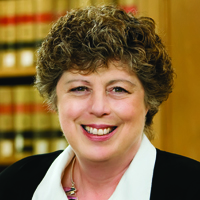 Cynthia Farina is the McRoberts Research Professor in Administration of the Law at Cornell University and a principal researcher in the Cornell e-Rulemaking Initiative (CeRI).
Cynthia Farina is the McRoberts Research Professor in Administration of the Law at Cornell University and a principal researcher in the Cornell e-Rulemaking Initiative (CeRI).Her scholarship and teaching focuses on administrative law and electronic government, the presidency, and due process and separation of powers. Co-author of the leading casebook in administrative law, she is also a Lifetime Fellow of the Administrative Law Section of the American Bar Association and a member of the Administrative Conference of the United States. A nationally known scholar of the administrative process, Professor Farina has served as reporter on a number of national administrative law projects. Most recently, she completed the report of a blue-ribbon cross-disciplinary committee who studied the emerging federal e-rulemaking system, to make recommendations to Congress and the new Administration. Previously, as one of the reporters of the European Union Project, she assessed the EU’s use of the Internet to increase transparency of, access to, and participation in the Union’s very complex government processes. As part of the multi-disciplinary CeRI team, she works with agencies in the Departments of Transportation and Commerce on theoretical and applied research, funded by the National Science Foundation, to improve agency management of and public access to e-rulemaking.
Following her graduation summa cum laude from Boston University School of Law, Professor Farina clerked for the Hon. Raymond J. Pettine, Chief Judge of the U.S. District Court of Rhode Island, and for the Hon. Spottswood Robinson, III, Chief Judge of the U.S. Court of Appeals, D.C. Circuit. She spent three years as a litigator in private practice before she joined the Cornell Law School Faculty.
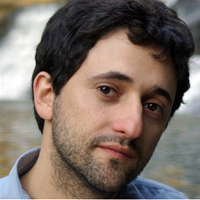 Dmitry Epstein is the Cornell eRulemaking Initiative Postdoctoral Fellow at the Cornell Law School, where he conducts research on online policy deliberations and the link between inequalities and online civic engagement. Dmitry earned his PhD from Cornell University, where he studied the policymaking processes and the international governance of information and communication, as well as the social and political implications of information and communication technologies, specifically the practices of technology use and the politics of communication platforms. He earned his BA in Economics from Tel-Aviv University and MA in Comparative Media Studies (cum laude) from the Ben-Gurion University of the Negev.Track 2: The Business of (Open) Legal Publishing
Dmitry Epstein is the Cornell eRulemaking Initiative Postdoctoral Fellow at the Cornell Law School, where he conducts research on online policy deliberations and the link between inequalities and online civic engagement. Dmitry earned his PhD from Cornell University, where he studied the policymaking processes and the international governance of information and communication, as well as the social and political implications of information and communication technologies, specifically the practices of technology use and the politics of communication platforms. He earned his BA in Economics from Tel-Aviv University and MA in Comparative Media Studies (cum laude) from the Ben-Gurion University of the Negev.Track 2: The Business of (Open) Legal Publishing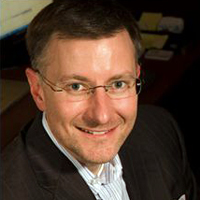 Ed Walters is the CEO, member of the board of directors, and co-founder of Fastcase, an online legal research software company based in Washington, D.C. Under Ed’s leadership, Fastcase has grown to one of the world’s largest legal publishers, currently serving more than 500,000 subscribers from around the world.
Ed Walters is the CEO, member of the board of directors, and co-founder of Fastcase, an online legal research software company based in Washington, D.C. Under Ed’s leadership, Fastcase has grown to one of the world’s largest legal publishers, currently serving more than 500,000 subscribers from around the world.Before founding Fastcase, Ed worked at Covington & Burling, inWashingtonD.C.andBrussels, where he advised Microsoft, Merck, SmithKline, the Business Software Alliance, the National Football League, and the National Hockey League. His practice focused on corporate advisory work for software companies and sports leagues, and intellectual property litigation.
Ed worked in the White House from 1991-1993, first in the Office of Media Affairs and then in the Office of Presidential Speechwriting. After working in the White House, he was the lead account executive in an influential Washingtonpublic relations boutique. He has written for The Washington Post, The New York Times, The University of Chicago Law Review, The Green Bag, and Legal Times, and has spoken extensively on legal publishing around the country.
Ed earned an A.B. in government from Georgetown University and a J.D. from the University of Chicago. He served as the Editor-in-Chief and Chairman of the Board of Directors of The Hoya, Georgetown University’s college newspaper, and during law school, he served as an editor of The University of Chicago Law Review. From 1996-97, he served as a judicial clerk with the Hon. Emilio M. Garza on the U.S. Court of Appeals for the Fifth Circuit. He is a member of the Virginia State Bar, and the District of Columbia Bar, and he has been admitted to practice in the U.S. Supreme Court and the U.S. Courts of Appeals for the Fourth Circuit and Fifth Circuit. He serves on the boards of Pro Bono Net, Democracy in Action, Friends of Telecom Without Borders, and Save a Child’s Heart Foundation. He has served on the Visiting Committee for the University of Chicago Law School, and the Visiting Committee for the University of Chicago Main Campus Library System.
Track 3: Free Law and Government Policy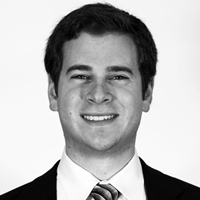 Daniel Schuman is the Sunlight Foundation’s policy counsel and director of the Advisory Committee on Transparency. He works to develop policies that further Sunlight’s mission of catalyzing greater government openness and transparency.
Daniel Schuman is the Sunlight Foundation’s policy counsel and director of the Advisory Committee on Transparency. He works to develop policies that further Sunlight’s mission of catalyzing greater government openness and transparency.An expert on the U.S. Congress, Daniel regularly works with congressional and executive branch staff to craft transparency and ethics legislation and policies. He directs the Advisory Committee on Transparency, a project of the Sunlight Foundation that educations policymakers on transparency-related issues, problems, and solutions, and shares ideas with members of the Congressional Transparency Caucus.
Daniel regularly speaks and writes about transparency and technology issues, and has appeared on NPR and C-SPAN and been cited by the New York Times, the Washington Post, and other media outlets. He also serves on the ABA’s Lobbying Reform Task Force. Contact Daniel on twitter @danielschuman or by email at dschuman(at)sunlightfoundation.com.
Track 4: Application Development for Open Access and Engagement
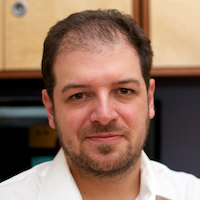 Marc-André Morissette joined Lexum in 1996. As a programmer, he contributed as much as he could to Lexum’s Web efforts, its search engine and various other technologies. In a textbook application of the Dilbert Principle, his “achievements” led to his promotion to the role of Director of Technology where he “oversees” Lexum’s various development efforts.Track 5: Data Organization and Legal Informatics
Marc-André Morissette joined Lexum in 1996. As a programmer, he contributed as much as he could to Lexum’s Web efforts, its search engine and various other technologies. In a textbook application of the Dilbert Principle, his “achievements” led to his promotion to the role of Director of Technology where he “oversees” Lexum’s various development efforts.Track 5: Data Organization and Legal Informatics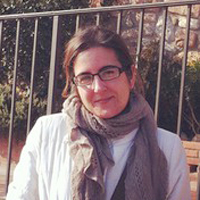 Núria Casellas is an Assistant Professor of Jurisprudence at the Public Law and Political Science Department of the Autonomous University of Barcelona, and researcher at the Institute of Law and Technology (UAB, Spain). She is currently a visiting postdoctoral researcher at the Legal Information Institute, at Cornell University Law School. Her current research explores the social construction of legal concepts and the use of computation legal ontologies for legal knowledge representation, the application of Linked Open Legal Data, and the relationship between the open access to public information (in particular, legal information), and their effects on rule of law and governance. She has recently published “Legal Ontology Engineering”.
Núria Casellas is an Assistant Professor of Jurisprudence at the Public Law and Political Science Department of the Autonomous University of Barcelona, and researcher at the Institute of Law and Technology (UAB, Spain). She is currently a visiting postdoctoral researcher at the Legal Information Institute, at Cornell University Law School. Her current research explores the social construction of legal concepts and the use of computation legal ontologies for legal knowledge representation, the application of Linked Open Legal Data, and the relationship between the open access to public information (in particular, legal information), and their effects on rule of law and governance. She has recently published “Legal Ontology Engineering”.She has participated in several national and European-funded research projects regarding the acquisition of knowledge in judicial settings (IURISERVICE), improving access to multimedia judicial content (E-Sentencias), on Drafting Legislation with Ontology-Based Support (DALOS), or in the Legal Case Study of the Semantically Enabled Knowledge Technologies (SEKT VI Framework project), among others.
She holds a Law Degree from the Universitat Autònoma de Barcelona, a Master’s Degree in Health Care Ethics and Law from the University of Manchester, and a PhD in Public Law and Legal Philosophy (UAB).
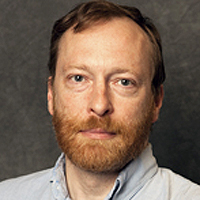 John Joergensen is the digital services librarian at Rutgers University School of Law – Camden. Since 1997, he has published a wide range of New Jersey primary source materials, and is currently digitizing the library’s collection of congressional documents. His work has been recognized by the American Association of Law Libraries. More recently, he was included as a member of the FastCase 50 list of innovators in the field of legal information in America.
John Joergensen is the digital services librarian at Rutgers University School of Law – Camden. Since 1997, he has published a wide range of New Jersey primary source materials, and is currently digitizing the library’s collection of congressional documents. His work has been recognized by the American Association of Law Libraries. More recently, he was included as a member of the FastCase 50 list of innovators in the field of legal information in America.Mr. Joergensen received B.A. and M.A. degrees from Fordham University, J.D. from Temple University, and M.S. (LIS) from Drexel University. Prior to coming to Rutgers, he practiced law in Philadelphia, PA.

